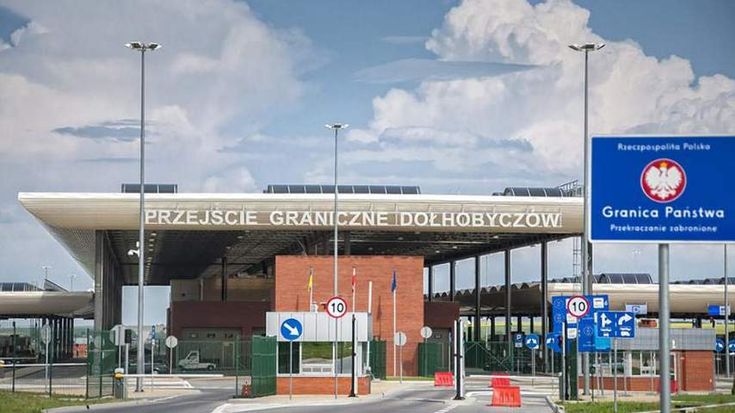How to avoid problems with Polish customs authorities: legal advice
International trade is always accompanied by a significant number of procedures that are essential for the efficient conduct of business. When it comes to trade through the Polish customs authorities, there are certain aspects to consider that will help you avoid unnecessary delays, sanctions or even confiscation of goods. Polish customs authorities carefully check the import and export of goods, which can cause difficulties for foreign entrepreneurs. This article will help you understand how to ensure correct paperwork, compliance with customs procedures and avoid legal risks. Legal advice, legal analysis of documents and a legal opinion of a lawyer are important tools to minimise problems.
Key steps to prepare for customs clearance
Effective preparation for customs clearance in Poland begins with proper preparation of documents and careful planning of the transport process. Following these steps will help you avoid unforeseen situations and ensure a stable customs clearance process. Legal advice will help you determine the best strategy and ensure compliance with all customs legislation requirements.
- Preparation of the necessary documents. All documents, such as invoices, transport documents, certificates of origin, must be properly executed. Having the documents checked by a lawyer helps to avoid possible errors in the documentation that could lead to delays or refusals at customs.
- Compliance of goods with the requirements of standards. Some categories of goods may require additional certificates of conformity. For example, food, medicines, cosmetics or chemicals may be subject to special requirements. Legal analysis of documents will help to prepare all necessary permits and certificates in accordance with the requirements of Polish law.
- Preparation for possible inspection of goods. The customs authorities have the right to inspect cargo to confirm that the goods comply with the declared characteristics. In case of discrepancies, serious consequences may arise, including fines or confiscation of goods. A legal opinion from a lawyer can ensure that the goods meet all the requirements and prepare your business for a possible inspection.
Typical problems during customs control
One of the most common problems faced by companies is the absence or inaccuracy of documents accompanying the goods. In addition, there may be situations where the goods do not meet the declared characteristics or violate customs regulations. A legal analysis of the situation before submitting documents allows you to identify possible risks in advance and avoid significant sanctions. Below are the most common problems:
- Inaccurate or incomplete documentation. Failure to comply with the requirements for paperwork or the absence of important information can lead to serious delays and even fines. Having your documents checked by a lawyer helps to eliminate inaccuracies in a timely manner.
- Incorrect classification of goods by customs codes. Each product has its own customs code, and its incorrect indication can lead to fines and increased customs costs. Online legal advice will help you choose the correct customs code.
- Discrepancy between the declared value of the goods. Overstating or understating the value of goods is a serious violation of customs regulations. Legal analysis of documents will allow you to establish the correct assessment of the value of the goods, which will help you avoid financial risks.
Key documents for customs clearance
Before submitting your cargo for customs control, it is important to prepare a full package of documents that will confirm the legality and compliance of the goods with the requirements. Legal advice will help you make sure that each document is properly executed and contains no errors. The main documents required for customs clearance include:
- Invoices and waybills. These documents are required to confirm the value of the goods and are used to determine customs duties.
- Certificates of conformity and certificates of origin. Some goods require confirmation of compliance with quality standards and the origin of the goods.
- Transport documents. It is important to have a CMR for road transport, an air waybill or other relevant documents to confirm the route of transport.
How to effectively prepare for customs inspection
Customs inspection is an important stage of the inspection, during which the authorities control the compliance of goods with documents and declared information. To avoid problems, you should carefully prepare for this procedure, ensuring that all information about the goods is accurate and meets the requirements of customs. Consulting a lawyer allows you to get acquainted with all aspects of customs inspection in advance.
- Ensuring that the documents correspond to the goods. All documents must reflect the exact characteristics of the goods. A legal analysis of the documents prior to their submission will help ensure that there are no discrepancies.
- Inspection of the cargo before submission to customs. A preliminary inspection of the cargo will help to avoid customs detecting violations or discrepancies, which may lead to delays or confiscation.
- Providing legal support during the inspection. If the customs authorities decide to inspect the cargo, it is useful to have the support of a lawyer who can protect the company's interests in case of disputes.
Questions.
Can customs refuse to let goods through because of discrepancies in documents?
Answer.
Yes, customs authorities may refuse to let goods through if they find discrepancies in documents or non-compliance with standards. To avoid such problems, it is important to contact a lawyer to check the documents and obtain a legal opinion.
Benefits of legal support during customs clearance
Legal support helps companies avoid mistakes in customs clearance, reduce the risk of delays and avoid fines. A lawyer who is well versed in the requirements of customs legislation will be able to ensure that documents are prepared correctly, that all procedures are followed and that the company's interests are represented in the event of a dispute. Legal advice and a legal opinion are important steps to ensure successful customs clearance and preservation of business reputation.
Verification of documents by a lawyer. A lawyer will ensure that all documents required for customs clearance are correct.
Online legal advice. Advocate will help answer questions related to customs clearance, even if you are in another country.
Legal analysis of documents. The lawyer will analyse the documentation to ensure that it meets the requirements and provide a legal opinion on its completeness and correctness.
Legal opinion of a lawyer. The legal opinion will confirm the legality of all actions and guarantee the protection of interests during customs clearance.
Understanding the peculiarities of customs clearance and cooperation with a lawyer are key factors for successful customs clearance in Poland. Document verification, legal analysis and legal opinion will help you avoid fines, delays and other problems that may arise during customs clearance. Legal advice and support from a lawyer at every stage are important steps to protect your business interests internationally and ensure safe trade.



























